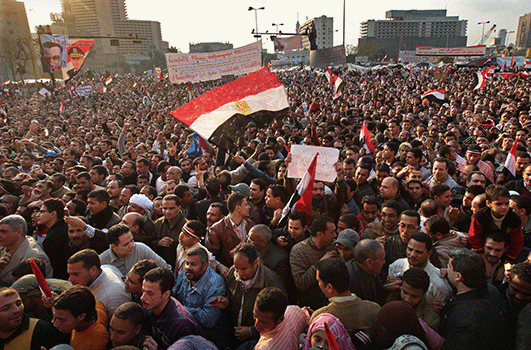Turmoil in Egypt Continues
June 19, 2012
The Muslim Brotherhood called today for mass demonstrations across Egypt to protest sweeping new powers assumed by the Supreme Council of the Armed Forces. The council has overseen Egypt’s transition after the toppling of President Hosni Mubarak in February 2011. Brotherhood leaders threatened to flood the streets of Cairo and other Egyptian cities with tens of thousands of protesters if the military continues its attempt to “rebuild [the] old regime.”
According to the Brotherhood, the official results of the presidential election on June 16 and 17 confirm that its candidate, Mohamed Morsi, won with 51.7 percent of the vote, compared with former Prime Minister Ahmed Shafiq’s 48.2 percent. Just as the polls were closing on the 17th, the Supreme Council issued a declaration granting itself sweeping new powers. While the council declared that it would turn over power to who was elected president, it stripped the office of any authority over the army; it also gave itself control over the budget and control of who will write a new, permanent constitution.
Two days before the presidential election, Egypt’s supreme court–stacked with Mubarak-era appointees–ruled that last year’s parliamentary elections had been unconstitutional. The decision dissolved the parliament, effectively handing over all legislative power to the council.
If Morsi’s victory is confirmed in the official results scheduled to be announced on June 21, he will be the first Islamist elected as a head of state following 2011′s extraordinary wave of pro-democracy uprisings, which came to be called the “Arab Spring.” An Islamist advocates Islamic political rule, which usually involves the imposition of Shari`ah law, the moral and legal code of Islam.

Hundreds of thousands of Egyptians protested against the government of President Hosni Mubarak in January 2011. The sometimes-violent demonstrations led to Mubarak’s resignation in February 2011. (© John Moore, Getty Images)
Additional World Book articles:
- Egypt 2011 (a Back in Time article)
- The Middle East: From Fall to Spring (a special report)


